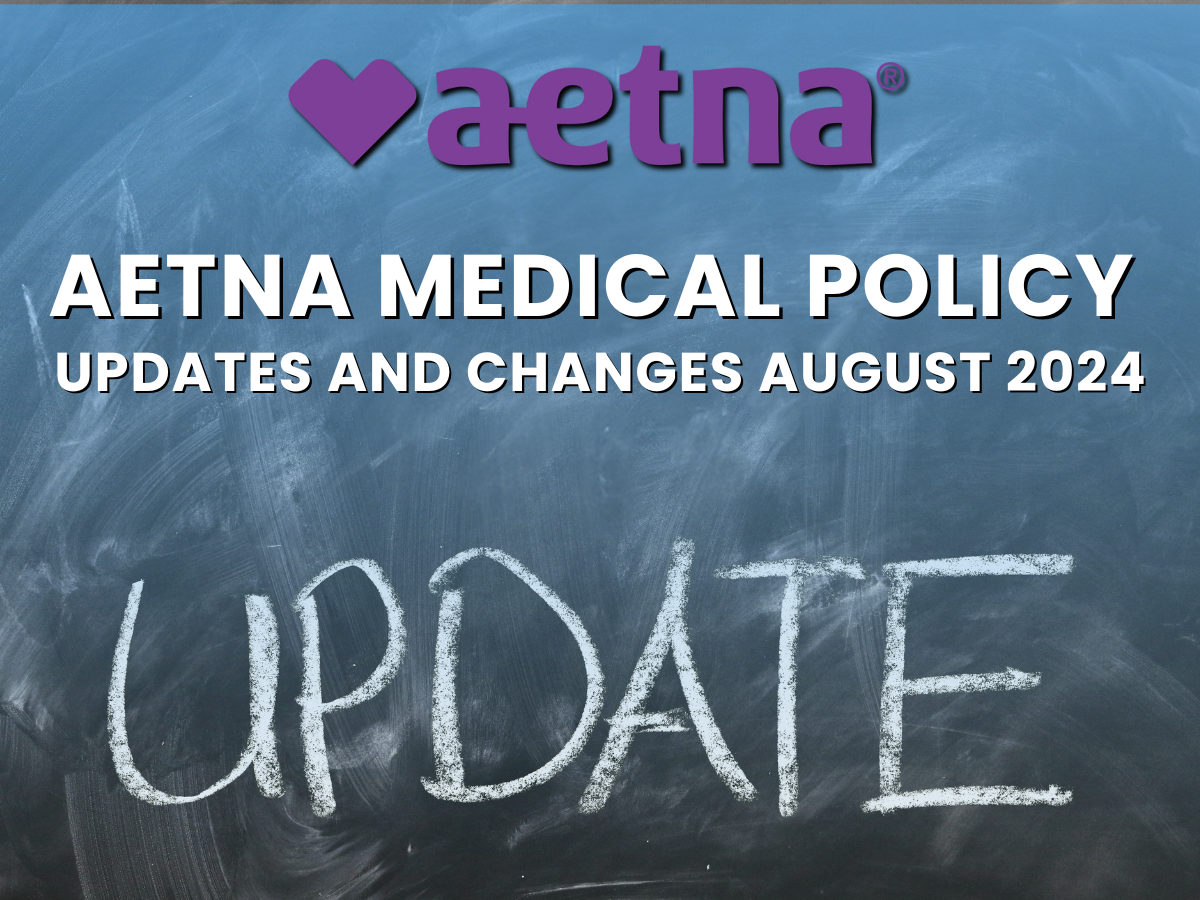Introduction to Aetna Medical Policy
Aetna Medical Policy, is one of the leading health insurance providers in the United States, regularly updates its medical policies to ensure they meet the evolving needs of its members. These updates are crucial for maintaining compliance with healthcare regulations and improving patient care. Aetna’s policies cover a broad spectrum of services and medications, and staying informed about these changes is essential for both providers and patients.
Aetna Health Insurance Plans
Aetna offers a variety of health insurance plans designed to cater to the diverse needs of its members. These plans range from individual and family plans to employer-sponsored group plans, and they provide comprehensive coverage for a wide array of medical services.
Types of Health Insurance Plans:
- Individual and Family Plans: Tailored to meet the healthcare needs of individuals and families, these plans offer various levels of coverage and flexibility.
- Employer-Sponsored Group Plans: Designed for businesses of all sizes, these plans provide employees with access to extensive healthcare services.
- Medicare Plans: Aetna also offers Medicare Advantage plans, Medicare Supplement plans, and Part D prescription drug plans for seniors.
Aetna Life Insurance
In addition to health insurance, Aetna provides life insurance options that offer financial protection and peace of mind to policyholders and their families.
Benefits and Coverage:
- Term Life Insurance: Provides coverage for a specific period, offering affordable premiums and substantial death benefits.
- Whole Life Insurance: Offers lifelong coverage with fixed premiums and a cash value component that grows over time.
- Universal Life Insurance: Combines the benefits of term and whole life insurance, offering flexible premiums and the potential for cash value accumulation.
Recent Changes in Aetna Medical Policy
Aetna’s recent policy updates, effective from August 2024, include significant changes to the National Precertification List (NPL) and new precertification requirements for specific drugs. These changes are part of Aetna’s ongoing efforts to streamline processes and ensure the effective management of healthcare services.
National Precertification List Changes in Aetna Medical Policy
The National Precertification List (NPL) is a critical component of Aetna’s policy framework, detailing the procedures and medications that require prior approval. Understanding these changes helps providers and patients navigate the healthcare system more effectively.
Precertification Requirements for New Drugs
Effective August 1, 2024, Aetna has introduced new precertification requirements for the following medications:
- Anktiva® (nogapendekin alfa inbakicept-pmln): Requires precertification under codes J3490, J3590, C9399, and J9999.
- Beqvez™ (fidanacogene elaparvovec-dzkt): Also requires precertification under codes J3490, J3590, and C9399.
Starting November 1, 2024, additional precertification requirements will be in place for:
- Krystexxa® (pegloticase): Requires precertification under code J2507.
- Vyvgart Hytrulo (efgartigimod alfa and hyaluronidase-qvfc): Requires site-of-care precertification under code J9334.
Site-of-Care Precertification
The site-of-care precertification requirement for Vyvgart Hytrulo emphasizes the importance of administering this drug in an appropriate setting, ensuring optimal patient outcomes and efficient use of healthcare resources.
Submitting Precertification Requests
To facilitate timely and accurate precertification, Aetna advises providers to submit requests at least two weeks in advance, including the actual date of service in the request. Early submission helps avoid delays and ensures that all necessary approvals are in place before the service date.
Best Practices for Precertification:
- Submit Requests Early: At least two weeks in advance.
- Include Service Date: Ensure the actual date of service is included in the request.
- Utilize Online Tools: Use online portals like Availity for faster processing.
Using Availity for Precertification
Availity is a secure, user-friendly online portal that simplifies the precertification process. Providers can submit most requests online, saving time and reducing administrative burden. Additionally, practices with Electronic Medical Record (EMR) systems can integrate electronic precertification requests for even greater efficiency.
Benefits of Online Requests:
- Speed: Faster processing compared to traditional methods.
- Security: Secure transmission of sensitive patient information.
- Convenience: Available 24/7, allowing requests to be submitted at any time.
Specialty Drug Precertification
For specialty drugs, Aetna utilizes Novologix®, a comprehensive platform available through Availity. This tool ensures that all specialty drug precertification requests are handled efficiently, maintaining compliance with Aetna’s policies and improving patient access to necessary medications.
State-Specific Notes
Aetna’s policy updates may have state-specific variations. Providers in Texas and Maine should pay particular attention to these nuances to ensure compliance with local regulatory requirements.
Texas Providers:
- Changes will be implemented only if they comply with applicable regulatory requirements.
Maine Providers:
- Effective dates for routine changes will align with statutory dates of January 1, April 1, July 1, or October 1.
Services Billed with Non-Covered Diagnoses
Aetna will deny services billed with diagnoses considered not covered under standard plan exclusions. Providers should familiarize themselves with these exclusions to avoid claim denials and ensure proper billing practices.
Coverage for Disposable Hearing Aids
Aetna does not cover disposable hearing aids (HCPC V5262 or V5263) as they fall under standard plan exclusions. Providers should inform patients about this policy to prevent unexpected out-of-pocket expenses.
Place of Service Coding
Accurate place of service coding is crucial for compliance with Aetna’s policies. Certain procedure codes are allowable only in specific places of service, as outlined by the AMA CPT Manual and CMS.
Physical Therapy Service Locations:
- Inpatient: Physical therapy services provided in an inpatient hospital setting.
- Outpatient: Physical therapy services provided in an outpatient hospital setting.
Physician Service Locations:
- Appropriate place of service codes are essential for physician services to ensure accurate billing and reimbursement.
Importance of Following Aetna Medical Policy
Adhering to Aetna’s policies ensures compliance with healthcare regulations, reduces the risk of claim denials, and enhances the overall efficiency of healthcare delivery.
Impact of Non-Compliance
Non-compliance with Aetna’s policies can lead to significant consequences, including claim denials, financial penalties, and potential legal issues. Providers must stay informed about policy updates and integrate them into their practice workflows.
Tips for Providers
To ensure a smooth precertification process and avoid common pitfalls, providers should follow these tips:
- Stay Informed: Regularly review Aetna’s policy updates.
- Use Online Tools: Leverage platforms like Availity for efficient precertification.
- Submit Early: Ensure precertification requests are submitted well in advance.
FAQs on Aetna Medical Policy
What is the Aetna National Precertification List (NPL)? The NPL outlines procedures and medications that require prior approval from Aetna to ensure coverage.
Why is precertification necessary for certain drugs? Precertification ensures that the prescribed medications are necessary and meet Aetna’s coverage criteria, promoting appropriate use and cost management.
How can I submit a precertification request? You can submit requests online through the Availity portal or your practice’s EMR system if it’s set up for electronic requests.
Are there any state-specific variations in Aetna’s policies? Yes, policy changes may vary by state. Texas and Maine providers should review state-specific notes to ensure compliance.
Does Aetna cover disposable hearing aids? No, Aetna does not cover disposable hearing aids as they are considered not covered per standard plan exclusions.
What are the consequences of not following Aetna’s policies? Non-compliance can result in claim denials, financial penalties, and potential legal issues. It’s crucial to adhere to Aetna’s policies to avoid these consequences.
Conclusion
Staying up-to-date with Aetna’s medical policy changes is essential for healthcare providers to ensure compliance, avoid claim denials, and provide the best possible care to their patients. By understanding and integrating these updates into practice workflows, providers can streamline their processes and enhance overall efficiency.










